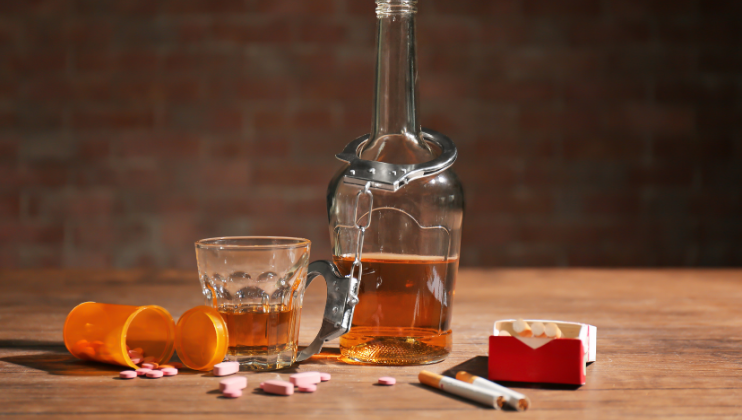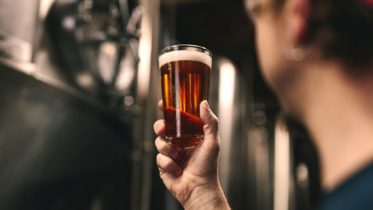We all use substances all the time. We take painkillers for headaches, cramps, pain from injuries, we take tablets to help with sleep or reduce levels of anxiety and depression. We might have a cold beer or a glass of wine at the end of a busy day to help ease into a period of relaxation before bed.
If we’re using these substances mindfully, responsibly and in the way they are intended, they can serve us and our needs well.
Often, however, particularly when life is challenging and stressful, we can slip into using them inappropriately, and unhealthily. Rather than seeking support or sharing how we are feeling, we often take matters into our own hands and start to self-medicate… Perhaps an extra tablet before bed or a drink combined with medication.
We are now highlighting some of the risks associated with combining different substances and to direct you to more specialist support services.
The 3 main types of substances
- Over the counter medications: Available from a pharmacy without a prescription. Guidance is given on the packaging on how and when to use them. Examples include paracetamol, Night Nurse, ibuprofen and antihistamines.
- Prescription medications: Only available with a prescription from a qualified health professional. It’s important these are taken as prescribed. Examples include anti-anxiety medications, anti-depressants, opioid-based pain medications, statins and antibiotics.
- Illegal drugs: Obtained illegally, often for recreational purposes. Can be highly addictive. Examples include cocaine, marijuana, LSD, speed, heroine and MDMA.
How drugs can impact mental health
Certain drugs can have a direct impact on our mental health – and some combinations of depressants and stimulants can prove particularly dangerous. The Drugs Wheel, by Mark Adley, which is based on work at www.thedrugswheel.com shows where different drugs fall.

Source: The Drugs Wheel
Depressant + Depressant: Affects the central nervous system. Brings a delayed response to unexpected situations.
Depressant + Stimulant: One is trying to speed things up and the other, to slow things down. The combination of these effects puts your brain and body under a great deal of pressure.
Stimulant + Stimulant: Speeds up the central nervous system leading to increased heart rate and blood pressure.
Combining alcohol and other substances
Regardless of the substance you are using, whether they have been prescribed (painkillers, anti-depressants) obtained illegally (cannabis, cocaine), or bought from the supermarket (alcohol, paracetamol), it is possible to misuse them and to suffer harmful consequences.

The central nervous system and brain are both affected in various ways, often speeding things up or slowing them down. Whatever you are taking it is important to understand why you are taking it.
Here are some questions you could ask yourself:
- Do I know why I have been prescribed this medication?
- Am I taking it as it has been prescribed?
- Has my use of this substance had any negative consequences in my life?
- Am I distracted by thoughts or desires to use a substance?
- Have I started being secretive around my use of a substance?
If your answers to any of these questions have left you thinking you might benefit from some further support, scroll down for links to sites and apps that provide more information and guidance.
What is cross-addiction?
Put simply, cross-addiction is the transfer of physical and/or psychological dependency from one substance to another. Often the danger is unforeseen, as the individual does not associate risk to other/new substances.
Someone in recovery from alcohol use disorder, for example, could be more susceptible to developing a dependency to sedatives because the chemical actions of the two drugs are similar. If this begins to happen, the development of this new issue could lead to a relapse on an individual’s primary substance.
Useful websites to visit
Drinkaware: Provides independent advice, information and tools to help people make better choices around drinking and drug use.
FRANK: Advice, facts and support on drugs and alcohol with lots of information about the effects of drugs and laws surrounding drugs.
Adfam: A national charity offering support to the family members and friends of those struggling with alcohol and drug use.
Turning Point: A health and social care organisation that offers support in areas such as substance misuse, primary care, learning disabilities and mental health.
We are with you: A charity operating in England and Scotland supporting people to make positive behavioural changes in their relationships with alcohol and drugs.
Mind: Operating in England and Wales, Mind offers support and advice to people experiencing mental health problems.
NHS: Those who are battling substance addiction are entitled to NHS care in the same way as anyone else who has a health problem.
Help Me Stop: Affordable and accessible ‘dayhab’ treatment programme based in London.
Choices Rehabs: Representing several independent, mostly not-for-profit addiction treatment centres around England.
You can also use the NHS alcohol service finder and the NHS drug service finder, to find treatment services near you.
Mutual Aid Meetings/Online Support
Useful apps
Medisafe is a free app which helps you manage your medication, while Evergreen Life PHR is a free app designed to help you manage all of your health information.




